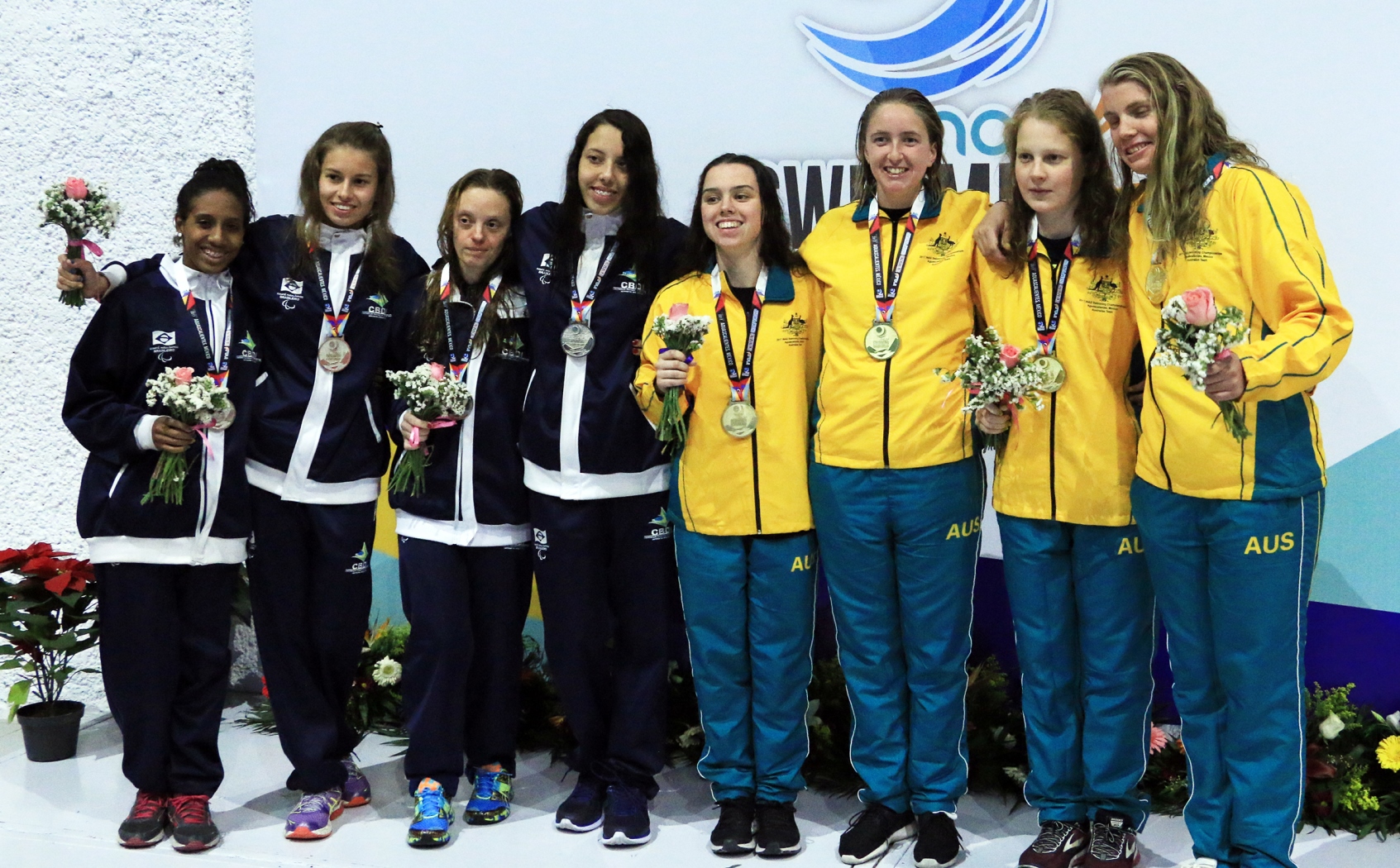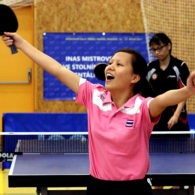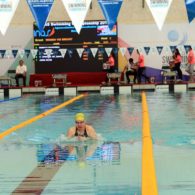Lucy grabs third gold at 2017 World Intellectual Impairment Sport Swimming Championships
Australia’s Jade Lucy collected her third individual gold medal at the 2017 World Intellectual Impairment Sport Swimming Championships in Aguascalientes, Mexico, on Sunday (3 December).
The victory came in the women’s 1,500m freestyle S14 where Lucy breezed into first in 19:45.29. It was the 19-year-old’s final race of the Championships where she has made a real splash with under two years to go until Australia host the 2019 World Intellectual Impairment Sport Global Games in Brisbane.
Mexico’s Beatriz Resendiz De Garcia (20:24.64) secured silver. Her teammate Nora Elisa Garcia Sanchez (24:20.74) completed the top three.
Japan’s Kenichiro Matsuda (18:49.95) won gold in the men’s 1,500m freestyle S14. Macau’s Yu Chia Chen (19:32.44) was second, and the USA’s Jonathan Pierce (19:42.95) was third.
Japan have further medal hopes in two of tonight’s finals.
Shota Zayasu (2:24.84) led the field in the heats of the men’s 200m butterfly S14 ahead of Spain’s Luis Francisco Paredes (2:26.50) in second. Zayasu’s teammate Haruki Takayanagi (2:26.74) completed the top three.
Taiga Hayashida (1:11.96) went quickest in the men’s 100m breaststroke SB14, leading a trio of his teammates. Yasuhiro Tanaka (1:13.13) and Shinichi Hirota (1:14.97) were second and third respectively.
Nikesha Sophia Harding (2:46.75) will go for gold for Australia in the final of the women’s 200m butterfly S14 as the quickest from the heats. Chinese Taipei’s defending champion Jo-Lin Tu (3:01.99) was second ahead of Mexico’s Mariana Diaz De La Vega (3:14.62).
Brazil’s Ana Karolina Sores also went through, aiming to cement her position as the Championships most decorated S14 swimmer.
In the women’s 100m breaststroke SB14 Debora Borges Carneiro (1:22.96) placed herself in pole position to win another medal for Brazil. Japan’s Mai Deguchi (1:29.16) was second. Australia’s Jaime-Lee Getson (1:29.88) was third.
Youth
Mexico’s Alejandro Alvarado Alvarado (19:46.05) was the victor in the men’s 1,500m freestyle.
Alavarado’s teammate Nahum Hernandez Certina (2:43.29) won the title in the men’s 200m butterfly.
Trial significant additional impairment groups
Great Britain’s Billy Birchmore (23.41.84) claimed his latest gold in the men’s 1,500m freestyle – Down syndrome. Birchmore expertly led Mexico’s Jonathan Trejo Garcia (24:09.83) into second place. Another Mexican, Giovanni Flores Hernandez (25:26.51), claimed bronze.
In the women’s event Dunia Camacho Marenco (24:48.11) dominated to take the win. The USA’s Katya Vazhenin (30:58.61) sealed silver.
France’s Axel Belig impressed in the men’s 200m butterfly – Down syndrome. Touching in at 3:07.74 he topped the podium ahead of the USA’s Andy Miyares (3:27.31) with silver. Garcia (3:37.36) grabbed his second medal of the morning with bronze.
France doubled up on golds in the women’s equivalent as Cleo Renou (4:07.02) touched in first. Mexico’s Cindy Lorena Alacantara (4:23.21) was silver. Russia’s Anastacia Petrova (4:25.20) rounded-off the top three.
South Africa’s Melisa Van Bosch (1:50.10) secured gold in the women’s 100m breaststroke – Down syndrome. Brazil’s Kelly Da Silva Antunes (1:52.59) was second. Estonia’s Maria Rein (1:57.38) took bronze.
Caique Aimore (1:37.96) will go for gold for Brazil once again in the men’s 100m breaststroke – Down syndrome final. Spain’s Carlos Hernandez Ortiz (1:38.24) was second quickest. Colombia’s Jose Miguel Ramirez (1:38.92) was third.
Mexico secured another title in the men’s 1,500m freestyle – autism courtesy of Marco Antonio Martinez (21:47.83).
Anna Beem claimed the women’s 100m breaststroke – autism gold in 3:07.26.
Full results are available here.
The 2017 World Intellectual Impairment Sport Swimming Championships run until 3 December.
Live coverage, behind the scenes content, videos and pictures are available at World Intellectual Impairment Sport Facebook and Twitter.
Two eligibility groups are being trialled in Aguascalientes -1. Athletes with significant additional impairment – for athletes with an intellectual impairment and a further significant impairment. Initially this will be restricted to athletes with Down syndrome. 2. For athletes with autism




